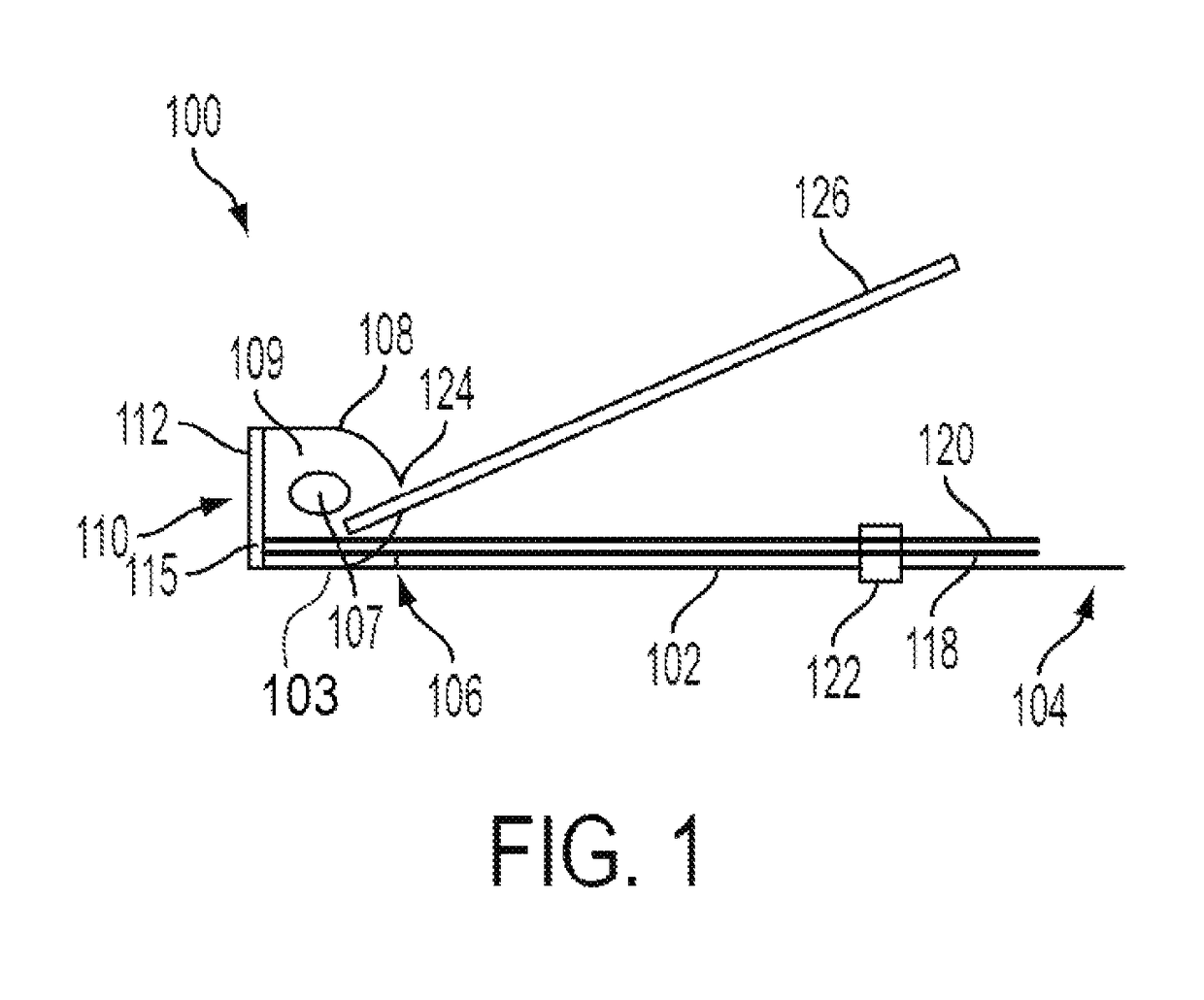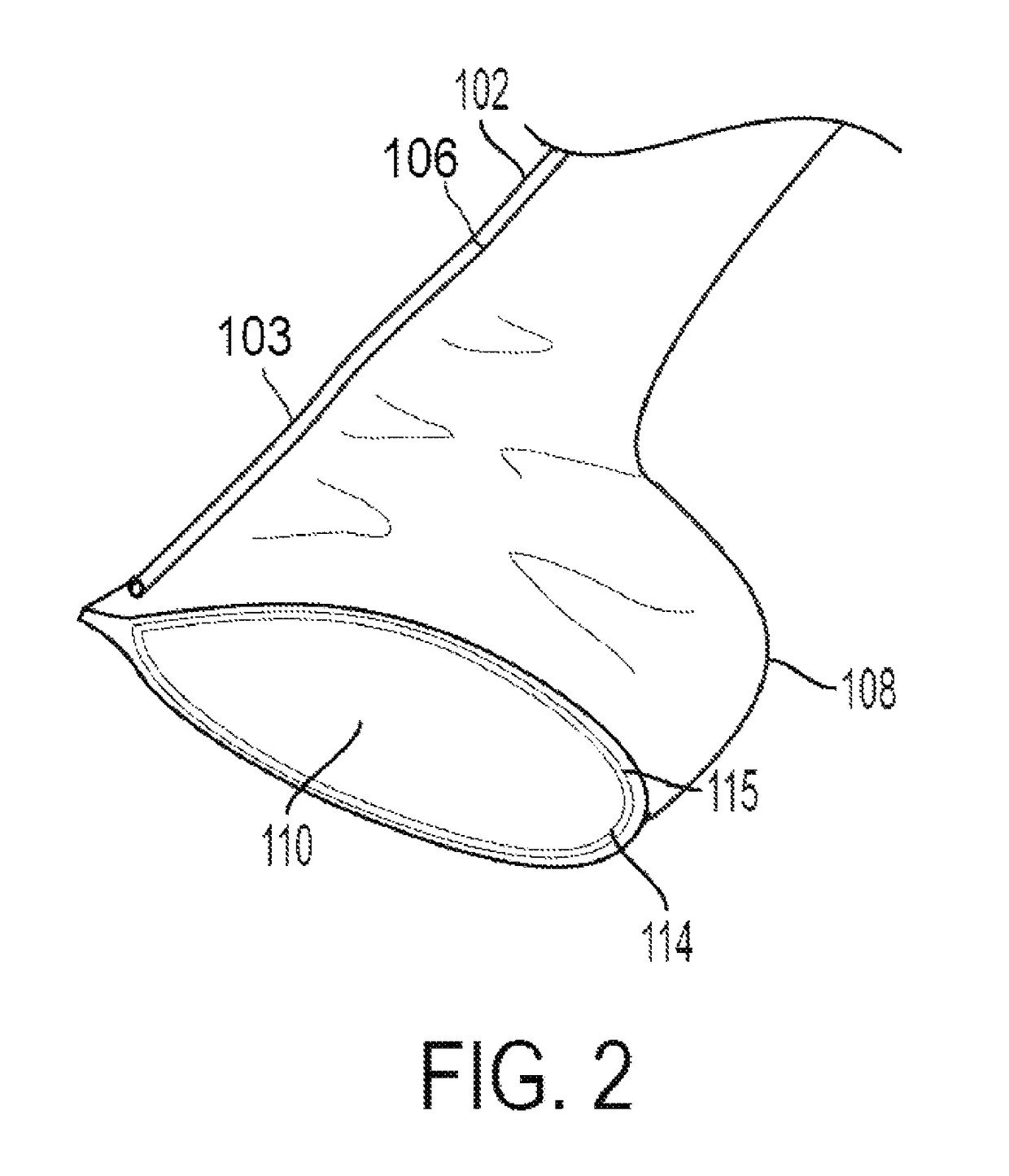Devices and methods for removal of calculus
a calculus and device technology, applied in the field of calculus removal, can solve the problems of increasing the operative time, affecting the removal effect, and thereby the cost of the procedure, and achieve the effect of efficient and complete removal of stones
- Summary
- Abstract
- Description
- Claims
- Application Information
AI Technical Summary
Benefits of technology
Problems solved by technology
Method used
Image
Examples
Embodiment Construction
[0042]Devices and methods for removal of kidney stones are disclosed herein. It should be noted, however, that while the devices and methods of the present disclosure will be described in connection with removal of kidney stones, the devices and methods of the present disclosure may be used to remove other types of stones or tissues, including, but not limited to, stone removal from ureters, urinary bladder, urethra, nasal passages, gastrointestinal track, salivary glands, or similar unwanted articles (or excised tissues) from other compartments, vessels or cavities of the body.
[0043]In reference to FIG. 1, a device 100 for removal of kidney stones of the present disclosure includes a rigid tubular member 102, having a proximal end 104 and a distal end 106. Rigid tubular member 102 may be made of any biocompatible material that provides the rigid tubular member 102 with sufficient structural integrity for advancement and withdrawal of the device in the kidney. For example, rigid tub...
PUM
 Login to View More
Login to View More Abstract
Description
Claims
Application Information
 Login to View More
Login to View More - R&D
- Intellectual Property
- Life Sciences
- Materials
- Tech Scout
- Unparalleled Data Quality
- Higher Quality Content
- 60% Fewer Hallucinations
Browse by: Latest US Patents, China's latest patents, Technical Efficacy Thesaurus, Application Domain, Technology Topic, Popular Technical Reports.
© 2025 PatSnap. All rights reserved.Legal|Privacy policy|Modern Slavery Act Transparency Statement|Sitemap|About US| Contact US: help@patsnap.com



